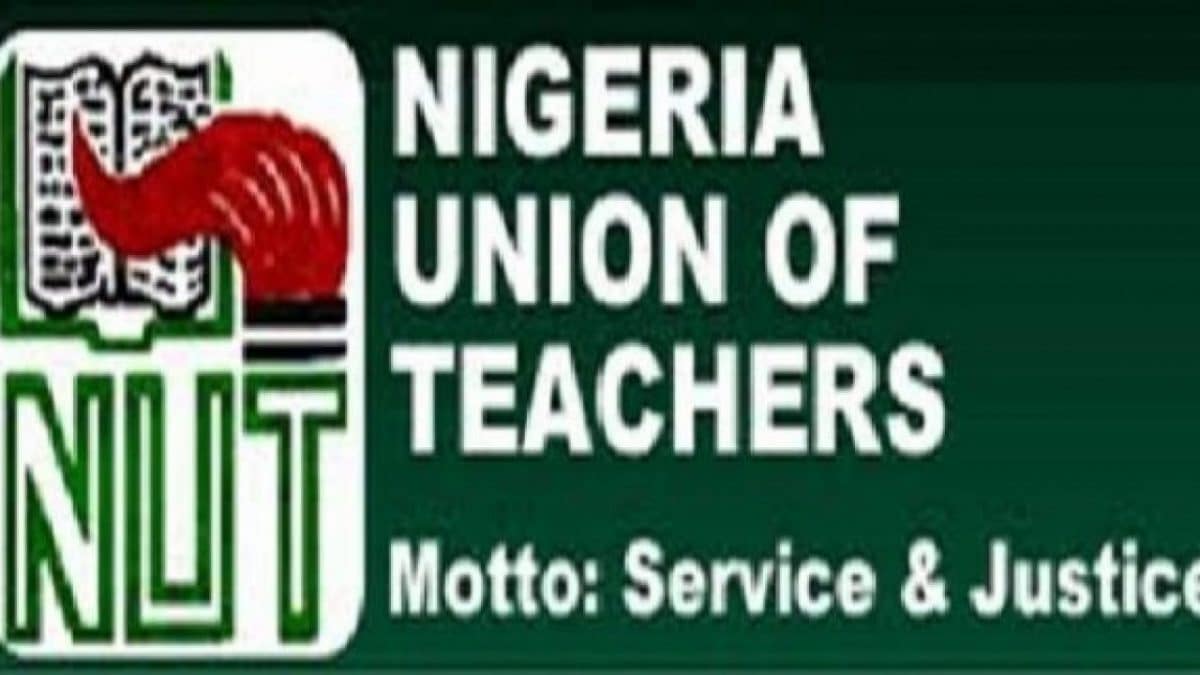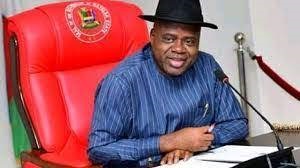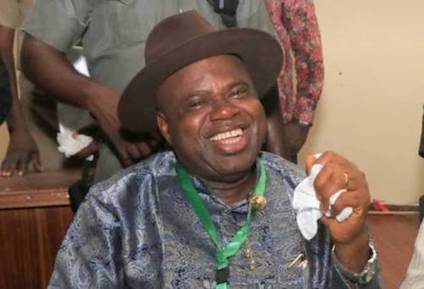Education
Jonathan Commends Bayelsa Gov on Education Summit

From TAYESE MIKE, Yenagoa
Former President of Nigeria, Dr. Goodluck Jonathan, has identified functional education as vital to the development of the manpower resources of any society.
Dr.
Jonathan, who was the keynote speaker, stated this on Monday at the maiden five-day Bayelsa State Education Summit, with the theme: “Optimising the Delivery, Performance and Sustainability of Outcomes in the Education Sector,” in Yenagoa.Highlighting the contributions he made in the development of the education sector when he was governor of the state and at the national level, Dr.
Jonathan emphasised the important role of information and communication technology.According to him, his administration made substantial investments at the national and state levels, including providing scholarship programmes.
He stressed that his recognition of the vital place of an educated citizenry was the reason behind his administration’s investment in almajiri schools in the North.
His words: “Education is a strategic tool for national development and social change. You cannot make progress without educated citizenry. People cannot develop without functional education.
“Today, ICT is key. It is replacing almost everything. The teaching of ICT has to start right from the nursery schools.”
He applauded the vision of Governor Douye Diri and his team in holding the summit to fashion out a sustainable policy for the sector.
He urged the state government to legalise its educational policies so that successive government would not jettison them.
Jonathan also charged stakeholders at the summit to consider introducing a common language in the educational curriculum.
“If we must come together, we must have a common language. When you want to develop our educational policies, do not forget the languages because language is very critical in creating global citizens.”
Declaring the summit open, Governor Douye Diri said at the peak of the COVID-19 pandemic, Bayelsa was handicapped as it lacked the equipment required in delivering remote learning.
On the need to back educational policies with a law, the governor said a bill would be sent to the House of Assembly to that effect.
Commenting on the need to adopt a common language, Senator Diri said already, the state executive council had adopted Kolokuma as the chosen dialect and directed the Ministries of Education and Ijaw National Affairs to ensure implementation of the policy.
According to him, “Language is not only critical in education but also in establishing one’s identity and conscious efforts must be made to ensure our language does not go into extinction.”
He called on stakeholders in the sector to develop a 15-year education plan that could be reviewed periodically to enable Bayelsans take their rightful place in the country and the world.
The ex-president advised that all the decisions that will be taken at the five-day summit should be transmitted to the Bayelsa State House of Assembly to be gazetted and put into law adding that the policy should be used to drive the education sector in the state for the next 20 years.

Jonathan said “For you to develop society you can’t do without education. For you to change society it must be through education. To develop a people, you must invest in the education sector.
“I hope at the end of this programme, there will a technical committee to develop this policy in the next 50 years.
Diri assured that the decisions would be gazette by the state’s assembly. “We will look at gazetting the education policy to become a law. It will be a 15years development plan. We will be reviewing it after three years,” he said.
The governor also assured that his administration would continue to support the model schools he inherited from his predecessor and called for support from the private sector, particularly the oil companies operating in the state.
Chairman of the state Education Development Trust Fund and one-time Minister of Science and Technology, Professor Turner Isoun represented by Prof Francis Sikoki, said the board remained committed to providing interventions in the education sector.
In their goodwill messages, chairman of the state traditional rulers council, King Alfred Diete-Spiff, representative of the Executive Secretary, Nigeria Content Development and Monitoring Board, Mr. Dan Kikile, and a representative of the Managing Director, Sterling Bank, described Senator Diri’s vision on holding the summit as brilliant.
They said this was time to put Bayelsa on the global education map.
No Development without Education-Jonathan
Education
UNICAL VC Promises to Resolve Dentistry Students’ Crisis

From Ene Asuquo, Calabar
The Vice Chancellor of the University of Calabar, Prof. Florence Obi has promised that she would do everything humanly possible to ensure that the ongoing crisis in the institution’s Department of Dentistry, is resolved.
Prof.
Obi made the promise in Calabar during a press briefing, stressing that she will resolve the crisis before leaving office.She explained that the problem predates her administration, and pledged to intensify efforts to rectify the crisis.
She added that the crisis was as a result of the Medical and Dental Council of Nigeria (MDCN)’s refusal to induct 2016 Dentistry students of the institution.She also debunked claims circulating on social media that the institution’s Dentistry programme has lost its accreditation, describing the reports as “misinformation and distortion of facts,” clarifying that the programme remains fully accredited and no students have been directed to transfer to other universities.
“At no point did the University ask Dentistry students to seek transfers to other institutions, nor were they advised to ‘go and learn a trade’ as falsely alleged online,” the VC stated.
“I will feel very bad if I leave without solving this problem and the students are left hanging without knowing their fate. I won’t be fulfilled,” she said.
She reaffirmed the University’s commitment to ensuring all Dentistry students graduate and are duly licensed as dental surgeons.
She noted that the Dentistry programme commenced in the 2013/2014 academic session, and in November 2019, the University secured pre-clinical accreditation from the MDCN and full clinical accreditation was subsequently granted in December 2022.
The VC added that the university’s synergy and partnership with the Minister of Education and the Tertiary Education Trust Fund (TETFund) to upgrade its facilities.
“All we asked for is time to engage with other institutions, update the Medical and Dental Council of Nigeria (MDCN), and follow through on due processes,” she noted.
Speaking further, Obi said that some of the affected students demanded to be transferred to the Department of Medicine and Surgery but said it was not the solution as the department was already saturated.
She urged the affected students to remain calm, noting that the university was doing everything possible to resolve the issues before the end of her tenure.
Education
NUT Reaffirms Commitment to Teachers’ Professional Development in Kwara

From Abdullahi Abubakar, Ilorin
The Nigeria Union of Teachers (NUT), Kwara State Wing has restated its commitment to strengthening the professional growth of teachers across the State, to enhance the quality of education delivered in public schools. Speaking at the opening of a three-day capacity-building workshop in Ilorin, the State Chairman of the Union, Comrade Yusuf Wahab Agboola, noted that continuous training of teachers remains a vital component of educational reform and improved classroom delivery.
The training, organised in collaboration with the NUT National Secretariat, is targeted at selected teachers and focuses on the “Study Circle Conveners’ Model”—a grassroots strategy for enhancing peer-to-peer learning and participatory leadership within the education sector.
Comrade Agboola explained that the workshop aims to equip teachers with practical skills in collaborative learning, peer engagement, and innovative teaching practices. He expressed optimism that the training would promote professional bonding among teachers and foster collective solutions to challenges facing the education sector.Also speaking at the event, the National Coordinator of the NUT Study Circle Project, Comrade Solomon Igbelowowa, traced the initiative’s roots to 1985 when it was introduced in Nigeria by the Swedish Teachers Association, having recorded success in Sweden and other parts of the world. He commended the Nigerian Union of Teachers for sustaining the project over the years and urged participants to engage fully and make the most of the training opportunity.
The workshop was officially declared open by the National President of the NUT, Audu Amba, who was represented by the 3rd National Vice President, Bashir Oyewo.
He encouraged teachers to approach the sessions with dedication and punctuality.
Education
JAMB Sets 150 Cut-off Mark for University Admissions

By Tony Obiechina Abuja
The Joint Admissions and Matriculation Board (JAMB) has fixed 150 as the minimum cut-off mark for admission into Nigerian universities for the 2025/2026 academic session.
The decision was reached on Tuesday during the 2025 Policy Meeting on Admissions, held at the Bola Ahmed Tinubu International Conference Centre in Abuja, with stakeholders from various tertiary institutions in attendance.
According to JAMB, 140 was approved as the minimum score for colleges of nursing sciences, while polytechnics, colleges of education, and colleges of agriculture will admit candidates with a minimum score of 100.
“The minimum admissible scores for admissions for the next academic session have been fixed at 150 for universities, 100 for polytechnics, 100 for colleges of education, and 140 for colleges of nursing sciences by the stakeholders (Heads of Tertiary Institutions),” JAMB announced via its official X account.




























